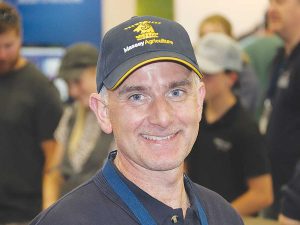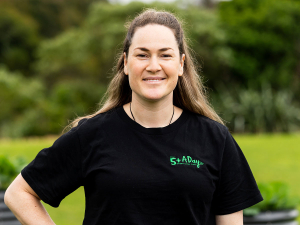A consortium of NZ's top soil scientists are investigating ways of how some silt damaged pasture and horticultural land in Hawke's Bay can be brought back in production.
Massey University's Farmed Landscape Research Centre director Professor Chris Anderson - himself a soil scientist - says Massey, along with AgResearch, Landcare and a private research group in Hawke's Bay, Landwise, are all involved in the project. The person doing much of the work is soil scientist Alan Palmer.
Anderson says the focus of the project is to look at land which is not covered in deep silt and the possibility of mixing the silt that is there in with the soil below. He explains that in some places the layer of silt is reasonably thin and it can be moved around to establish pasture.
"We've has people out there in the field doing comprehensive soil testing so that we can make good science decisions based on hard data," Anderson told Rural News.
He says there is obviously a lack of organic matter in the silt and the task is to find a way of building this back and understanding how best to do this. One way would be to try and establish ryegrass and cover crops to start the process of rehabilitating the land.
"One of the things we've discovered is that some of the silt from hill country catchments contains nutrients," Anderson explains. "We thought this silt may not contain any nutriets, but much to our amazement we have found traces of phosphorous - a nutrient we thought it might be lacking - and we are pleasantly surprised at the level there."
Anderson says one of the first things they did after Cyclone Gabrielle struck was to carefully study all the scientific papers that were produced after the disastrous 2004 Manawatu floods.
He says that gave them a good into the problems they were facing and helped shape a plan for how to deal with the problems in Hawke's Bay. That is now being implemented.
Anderson concedes the process will take time and says soil damaged by silt cannot be fixed overnight; it will take time to get in cover and rotation crops and build up the organic matter.
But he adds that soil systems are amazingly resilient if they are properly managed.
"I have got absolute confidence that we can bring some of this pasture back using good scientific evidence and not just speculative thinking."



















